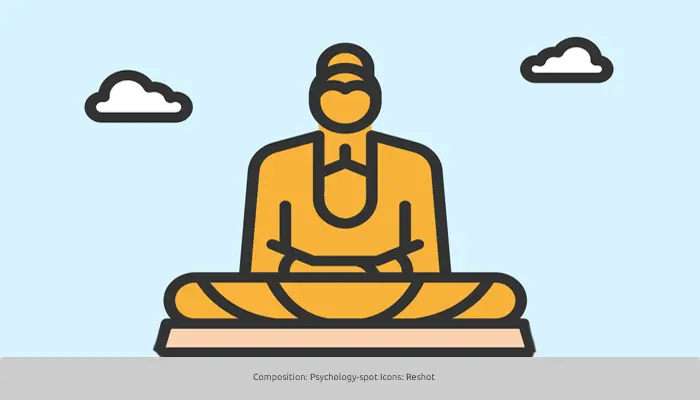
“If happiness always depends on something you hope for in the future, you will be chasing a utopia that will always elude you, until the future, and yourself, disappear into the abyss of death,” wrote philosopher Alan Watts. And yet, it is very difficult for us to live in the present without thinking about the future. The prospect of tomorrow does not abandon us, but rather captures a large part of our attention to warn us of all the problems, inconveniences and obstacles that we may encounter or to remind us of all that we have not yet done.
However, “Unless you are able to live fully in the present, the future is a delusion. There is no point in making plans for a future that you will never be able to enjoy because when your plans mature you will continue to live in a future beyond. You will never be able to lie down and say with total satisfaction: ‘Now I am going to enjoy!’ Education has deprived you of that ability because it was preparing you for the future instead of showing you how to be alive now,” warned Watts.
With our eyes on the future, we forget how to live in the present
“We live in a culture completely mesmerized by the illusion of time, in which the so-called present moment is felt only as an infinitesimal instant between an almighty causal past and an absorbingly important future. We have no present. Our consciousness is almost completely preoccupied with memory and expectation. We do not realize that there never was, is, and never will be any other experience than the present one. As a result, we have lost the touch with reality. We confuse the world that is talked about, described and measured with the world that really is”.
Unfortunately, our society educates us to always have our sights set on the future. It teaches us to set goals, always more ambitious, in a way that does not even leave us time to enjoy our achievements because we immediately begin to look beyond. Submerged in that elusive horizon, it is impossible for us to be fully present to enjoy the “here and now”.
When we focus on achieving our goals, our world shrinks, it is as if we entered a tunnel that prevents us from seeing what is outside because we spend much of our time looking at the light/goal that is drawn on the horizon. In this way we forget to live in the present, our mind is always somewhere else that seems more important and urgent than the here and now. As a result, it is not uncommon for us to end up disconnected from our reality, behaving in a maladaptive way, which ends up causing us more problems than it solves.
Watts explains “That is the human dilemma: we pay a price for each increase in consciousness. By remembering the past we can plan for the future. But the ability to plan for the future is offset by the ‘ability’ to fear pain and the unknown. Furthermore, developing a sense of the past and the future gives us a vague sense of the present. In other words, we seem to reach a point where the advantages of being mindful are outweighed by its disadvantages, where extreme sensitivity makes us maladjusted.”
Being, the key to living the present without thinking obsessively about the future
Most people don’t set higher goals for themselves simply to grow, expand their comfort zone, and challenge themselves, but identify with their accomplishments and use them as a “business card” to justify their existence.
The performance society “forces” us, in a certain way, to excuse our existence by showing the results we have achieved. We are not worth what we are, we are worth what we achieve. This mentality pushes us to continually look to the future, forgetting about the present. It pushes us to do and plan, making us forget to be.
To escape that mentality, Watts explains that we must understand that “The meaning of life is simply to be alive. It is very clear, obvious and simple. However, everyone runs in a panic as if it is necessary to reach something beyond themselves”. We need to be aware that “We only have the ‘now’. It doesn’t come from anywhere and it doesn’t go anywhere. It is not permanent, but impermanent”, and that means that to take advantage of it we have to learn to live in the present imbuing ourselves with the current experience.
However, it is important to keep in mind that “There are two ways of understanding an experience. The first is to compare it with memories of other experiences, and thus label and define it. That means interpreting it according to memories and the past. The second is to be aware of what happens as it is, as when, imbued with intense joy, we forget the past and the future, we let the present fill everything, and thus we do not even stop to think: ‘I am happy’”.
Therefore, to live in the present without continually thinking about the future, we must learn to beand to be. The secret lies in committing ourselves to the here and now, being aware that this constellation of fleeting moments is all we have to enjoy life.



